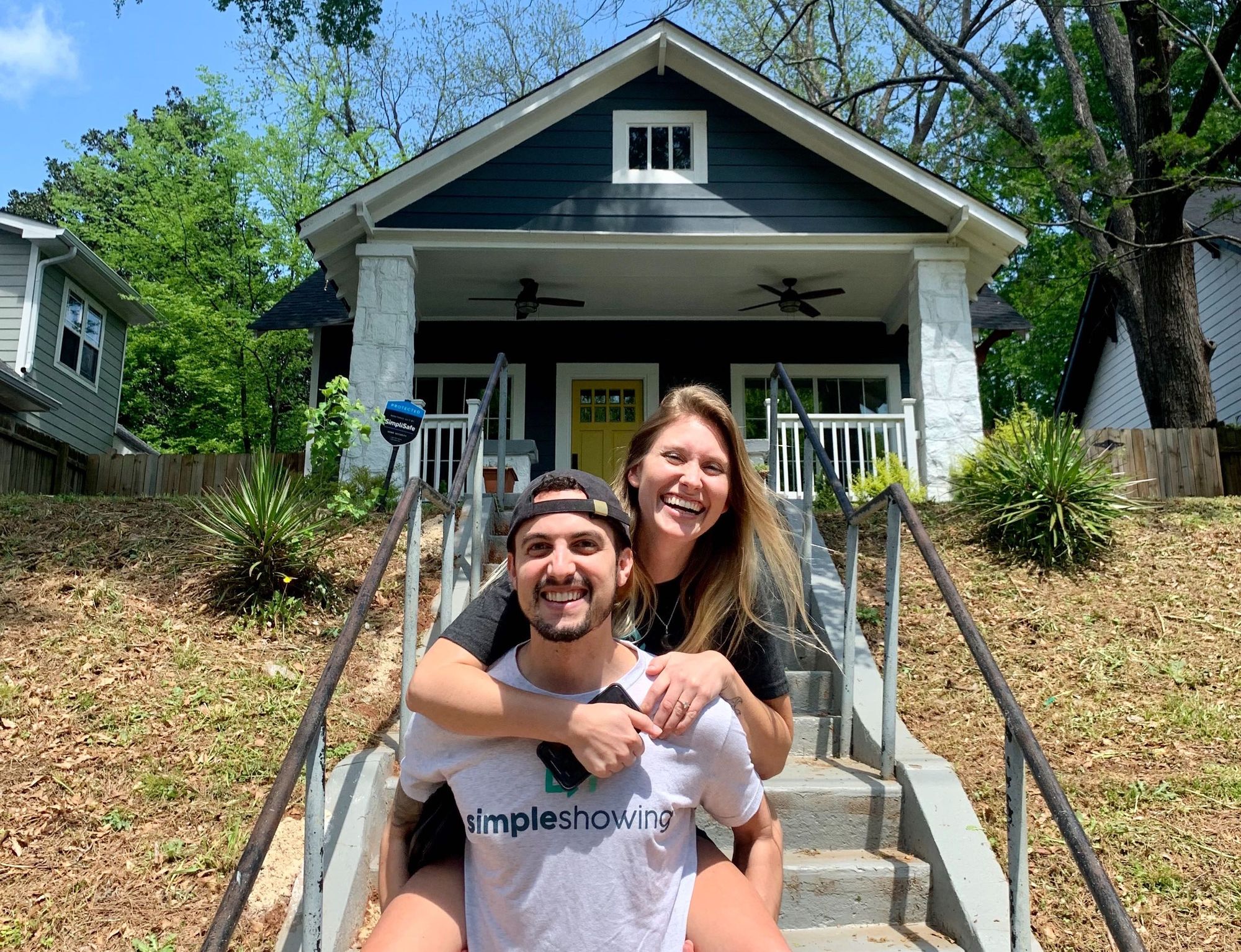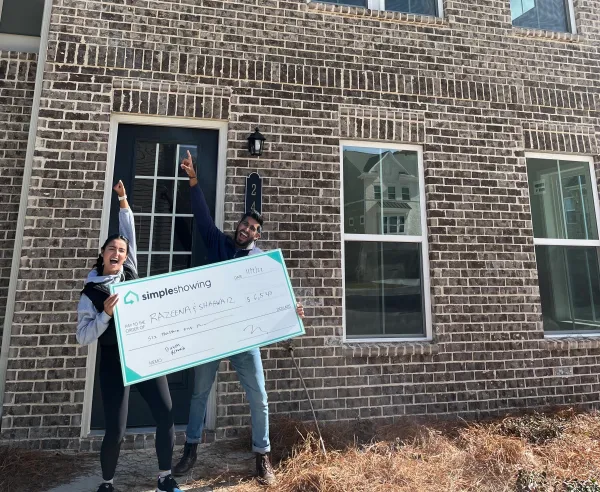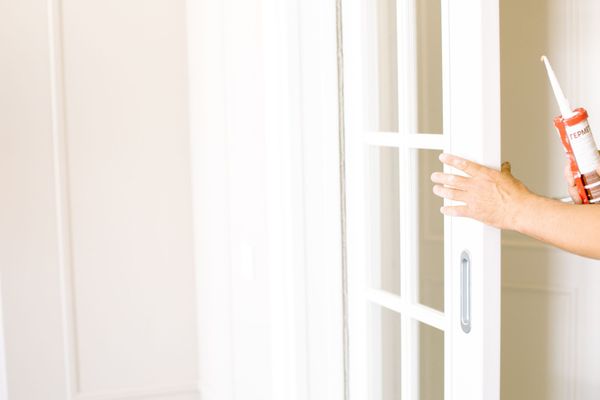Meet Katie and Matt from Atlanta, GA. They just purchased their very first home together in the West End neighborhood of Atlanta while making money at the end of the transaction. So, how did they do it?
In this article, we will explain the steps this millennial couple took to get paid when they bought their first home together.
Common Expenses of Buying A Home
Before we discuss the ways this millennial couple got paid to buy a home, let's discuss the most common expenses you will incur when doing so.
- Down Payment: The first and typically largest payment will be the down payment on your loan required by the mortgage lender. This can be anywhere from 0-20% or more — depending on how much you are comfortable putting down and which loan you select.
- Earnest Money: When you make an offer on a home, it is very common to offer around 1% in earnest money to convey to the seller that you are serious about your offer. Later on, this money goes towards your down payment. If you decide to back out of a transaction after the due diligence period is over, then you will not be able to get this money back.
- Lender Fees: When you choose to go with a mortgage to purchase a home, your lender will likely have some fees they charge to process and fund the loan.
- Title Fees: There are two types of title insurance purchased when you are buying a home: lender's title insurance and owner's title insurance. This title insurance protects the designated party against future claims from others on the title of the home. Most lender's require that you purchase lender's title insurance, but owner's title insurance is optional.
- Third Party Fees: Any number of third parties may be involved in the purchase of a home, each of which will charge a fee for their services. Some examples of these fees include: Appraisal Fee, Credit Report Fee, Mortgage Insurance and Tax Service Fee.
- Homeowner Fees: These fees include any other fees that come along with being a homeowner. The costs are typically assessed annually, but you will be required to pay back the seller for any fees they've already paid for the year. The most common examples of these fees are: Escrow Account Fees, Homeowners Association Dues, Homeowners Insurance and Property Taxes.
3 Factors to Buy A Home With No Money Down
1. Mortgage Loan with 0% Down Payment
Most people that buy homes have to take out a mortgage loan to complete the purchase. This typically involves researching mortgage lenders, submitting some paperwork, finding out the rates the lender offers and then getting prequalified for a loan before you put in an offer on a home.
There are several loan options out there with different down payment options.
Conventional loans typically require larger down payments while other loans like the FHA home loan only require around 3.5%. There are also loan option such as VA Loan that require a 0% down payment, but these are only available to military veterans which wasn't the case for Katie and Matt.
However, this couple did their research into First Time Home Buyer Loan Programs and were able to find a 0% loan option through our preferred lender at Center State Bank. This meant that the down payment that most homebuyers have to pay when they purchase their first home was avoided!
To put this into perspective, they avoided paying $11,550 up front that they would have had to pay if they chose to go with a mortgage loan that required a low down payment of 3.5%.
2. Seller Paid Closing Costs
One common request most home buyers ask for when purchasing a home is closing cost credits.
Now you may be unfamiliar with why this would benefit you, but we can explain.
As we mentioned above, there can be several closing costs that you have to pay up front when buying a home. These typically are around 2% of the purchase price and are due at the closing table.
Since one of the biggest deterrents to buying a home for many first-time home buyers is how much money they have to have upfront, it is very beneficial to try to lower this amount.
Not only can you lower the total amount you will need at closing by getting a loan with a low down payment, but you can also request that the seller pay some or all of your closing costs. If you are working with an experienced real estate agent, then they should be able to help you negotiate these in your offer.
In most scenarios, the buyers will ask for a certain purchase price on a home and then also ask for a certain amount in closing cost credits.
In doing so, you yet again remove another expense from the transaction.
3. SimpleShowing Refund
The main factor that allowed Matt and Katie to actually make money when they bought their home was the check they received for their SimpleShowing Buyer Refund.
This refund gives buyers up to 1.5% back when they purchase any home with a SimpleShowing Agent.
Therefore, in addition to getting all of their closing costs paid for and paying a 0% down payment, they also were able to get a check for 1.5% at closing with SimpleShowing.
For this millennial couple, this means that they walked away with a check for $4,950 at closing.
Connect With SimpleShowing to See How Much You Can Make
As you can see, Matt and Katie were able to accomplish the American Dream by doing their research and buying smart with SimpleShowing.
They got all of the support they needed to buy their first home from a full service SimpleShowing Agent who guided them every step of the way from touring homes, connecting them with a lender, writing up an offer, helping them with negotiating and landing them their dream home. Not to mention, they got an extra check for $4,950 that they can use for new furniture or whatever their hearts desire in their new home!
If you're interested in learning more about the SimpleShowing Buyer Refund and working with an agent who can help you make your dream a reality, then contact us today.
Conclusion
Navigating the competitive market of home buying, it's crucial to understand every aspect of the home buying process. The inspirational journey of this millennial couple emphasizes the importance of diligent planning and creative strategies like using YouTube videos to learn about the intricate details of buying a home. This includes methods for saving money, wisely managing credit card debt, and utilizing conventional loans to reduce monthly payments. These insights can prove invaluable, especially for first-time home buyers looking to navigate the complex world of real estate.
Their story serves as a beacon of hope and a practical guide for those seeking more space and wishing to make the most of their hard-earned money. It demonstrates that the homebuying process doesn't have to be a daunting endeavor. By conducting research, attending open houses, and getting pre-approved for loans, potential buyers can confidently make informed decisions. In doing so, they will be well-equipped to start saving for their future and securing a space they can proudly call home.
The experience of this millennial couple, from their initial journey of being paid to buy a home to their continued success in managing their finances, is a testament to their resourcefulness and tenacity. Despite the challenges, they've proven that with the right mindset and strategic planning, anyone can transform the dream of buying a home into a reality. As we conclude, remember that the home buying process is not just about purchasing a property; it's about investing in your future and creating a space where memories and dreams can flourish. With the right tools and resources, you too can conquer the world of home buying.






